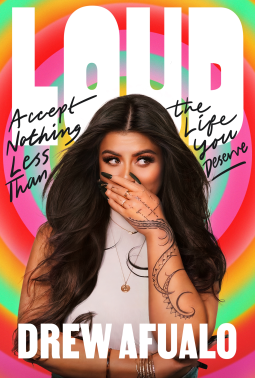More on this book
Community
Kindle Notes & Highlights
by
Drew Afualo
Read between
May 27 - May 28, 2025
As a former pick-me myself, I can spot all the signs from a mile away, and I know the importance of understanding the nuance of holding space for those women/femmes who are still lost, while also understanding that it isn’t our job to save everyone.
It’s nothing more than a distraction to turn us against ourselves, because if we’re focused on one another, we won’t notice misogynistic men closing (and holding) the door behind them. The contradictory nature of a pick-me is that it sets up a dynamic where you will never be equal if you have to ask for it in the first place.
No matter how many women you try to step on to be seen by the world’s most mediocre men, you will never be taller than any man. You will always be one step below. And how can they respect you when they’re always looking down at you?
The sad thing is that at its most effective, the patriarchy not only subjugates women and makes them believe they are less than, but also makes men into less empathetic, more close-minded versions of who they could be. In short, for the patriarchy to work, everyone gets hurt.
I’m still buzzing on the high of his attention. Which, of course, is when the conversation goes south.
Instead of mentoring, encouraging, or providing a safe space for me to accomplish all that she had or even more, especially in a male-dominated industry, she chose to go the scarcity route, believing that any accomplishment of mine meant one less opportunity for her.
Pick-me-ism is a disease. And if you don’t nip it in the bud, it can be terminal, murdering any chance you have to live a life free from the shackles of male validation.
But although I always call out pick-me behavior, I try my best to understand the individual participating in it. Because I know just how difficult it is to go against something that is ingrained in literally every aspect of our society, and that everyone’s journey to unlearning pick-me-ism starts at different points in their lives. And most importantly, it must start on their own terms.
The devil works hard, but the patriarchy works harder.
The system preys on the vulnerable, and if you think selling out your fellow girls for the attention of men is going to make you immune to it, you’re a fool. And playing along with the patriarchy’s game is no way to get out of it. As the writer and activist Audre Lorde wrote, “The master’s tools will never dismantle the master’s house.”
According to the study, this is because women worry about family members or loved ones finding them and being traumatized by what they see. So they try less violent, and thus less final, ways—and therefore survive more often. Thinking about what an emotional load women carry every day purely because even at the end of their ropes they can’t bear the thought of upsetting other people?
In my own interactions with men, I began to realize that I needed to be a fucking bitch if I wanted men to take me seriously when I asked them to leave me alone, because being “nice” or trying to “let them down easy” meant that men saw that as a challenge, not the hard no that it was.
Because that’s the hallmark of being a woman in this world. Soldiering on even when the unfathomable happens to you … because the world doesn’t give you a chance to patch yourself up.
Loneliness is not permanent—it’s an emotion. And emotions are like waves: they ebb and flow, they come and they go. So as quickly as this feeling came, it could easily be washed away if I reminded myself: I am not lonely, I am alone.
The people in the first row come from the strongest points of privilege, e.g., white cis men, ahead of rows occupied by people with decreasing amounts of opportunity as it comes to the intersection of their gender identity, sexuality, race, class, whether or not they’re able-bodied, etc., with the very least privileged standing at the back of the class.
So if you sit in the very front, you don’t think oppression exists, because you can’t see it. It’s up to the people at the front of the classroom to acknowledge their point of privilege and make a concerted effort to turn around and look back.
It’s the belief that you can simply be at peace with your physical appearance. That your form is neither good nor bad, but a vessel that allows you to move and exist in the world. The only feeling you direct toward your body is gratefulness for what it does for you every day in keeping you alive. I prefer this approach to my own physical appearance because I want to be in a place where I appreciate what my body does for me and nothing more.
You cannot make a man feel less than unless he first derives power from being stronger than you (in whatever capacity that is).
The male gaze convinces us that we should value ourselves only through the narrow (and often racist/fatphobic/ableist) lens of what’s attractive to men, when in reality, our bodies are individual works of art.


